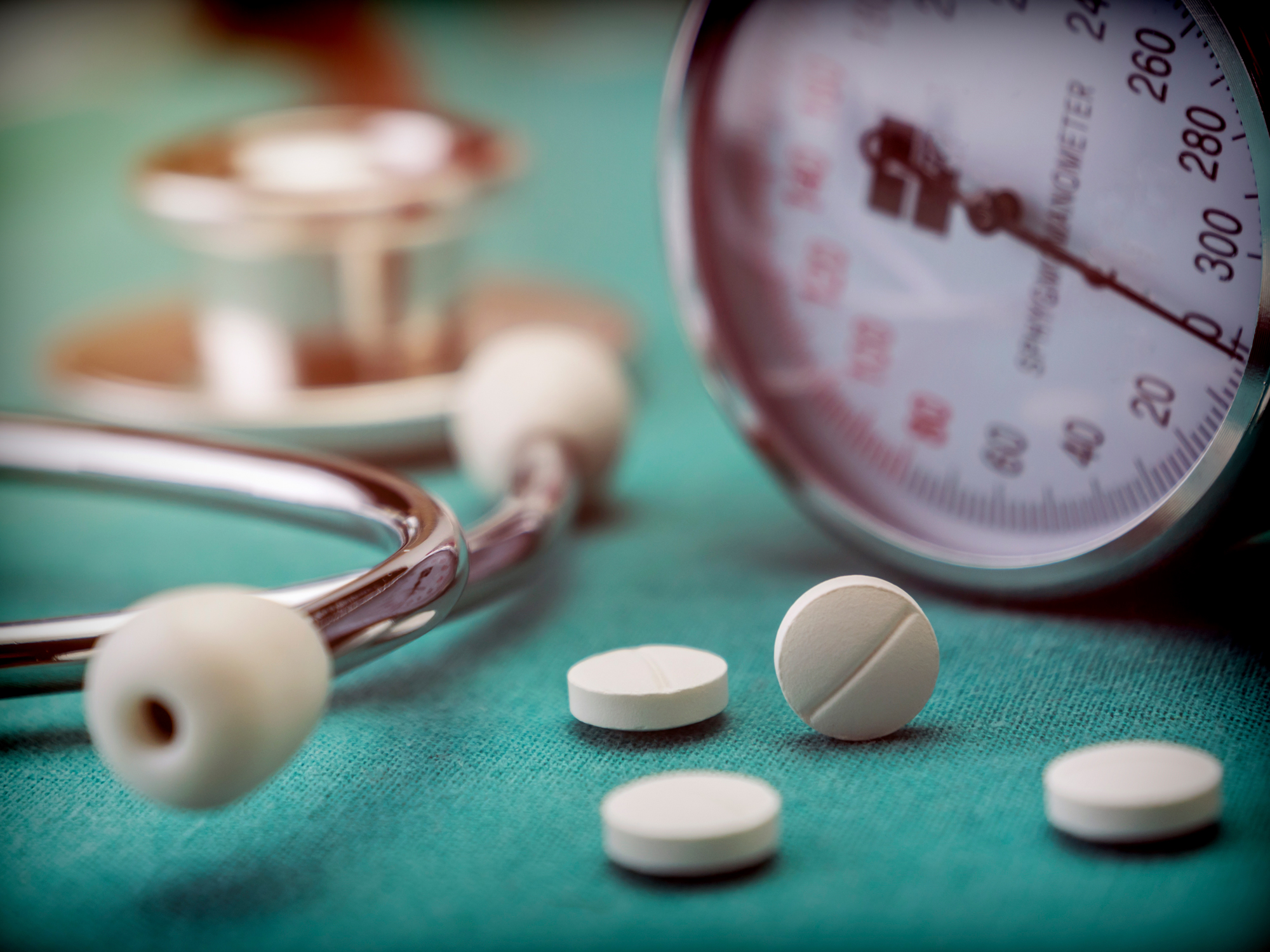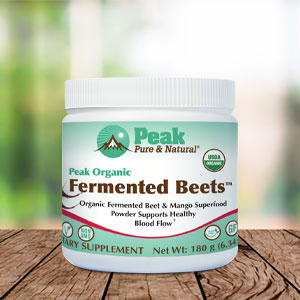Get Easy Health Digest™ in your inbox and don’t miss a thing when you subscribe today. Plus, get the free bonus report, Mother Nature’s Tips, Tricks and Remedies for Cholesterol, Blood Pressure & Blood Sugar as my way of saying welcome to the community!
Why you may wake up tomorrow with high blood pressure

Did you know that the leading cause of visits to the primary care doctor in America is for high blood pressure?
And, even though there are numerous ways to get blood pressure in check, recent recommendations issued by the American College of Cardiology (ACC) and American Heart Association (AHA) will likely put more lives at risk.
That’s because they want even more people taking their prescription meds… specifically, those who’ve yet to be diagnosed with high pressure because, well, they don’t have high blood pressure.
What could that mean for you? Let’s talk about it…
31 million more Americans suddenly now have hypertension
With the new lowered criteria for high blood pressure, an estimated 31 Million more people in America, an additional 13.7 percent of all adults, would now carry the diagnosis. The new guideline for high blood pressure in adults was published this month in the Journal of the American College of Cardiology.
This isn’t the first time something like this has happened — it wasn’t that long ago that there was a push to have everyone taking statins like vitamins. And that was just as bad an idea as this one…
The new blood pressure guidelines for physicians call for lowering the threshold from 140/80 mmHg to 130/80 mmHg for making the diagnosis of hypertension in all adults. With this also comes the recommendation for lowering the threshold for prescribing drugs as the treatment, especially if you have any associated existing heart disease or a calculated 10-year heart disease risk of ≥10 percent, diabetes or kidney disease.
According to the report, 80 percent of you who are newly diagnosed with hypertension (under the ACC/AHA guideline) would get no expected reduction in cardiovascular disease risk by lowering your blood pressure; 11 percent would get a marginal benefit, and 9 percent would get a larger benefit.
I’ll outline the troubles incurred by this wider definition of disease:
- Increased risk of anxiety and depression regarding having a disease, compared to those with the same blood pressure and risk who aren’t labeled as having hypertension. I see quite often in my office practice — and there is even an ICD-10 diagnosis code (Z71.1) called “Health condition feared but not present.” Other symptoms of worry include body pains, insomnia, intestinal symptoms, heart palpitations, and more.
- More medication prescribed for this means more people will have medication side effects.
- In those of you without health insurance coverage, you could face difficulty obtaining insurance coverage due to a ‘pre-existing’ condition
- Systolic blood pressure actually has poor reproducibility, with a 10mmHg standard deviation for blood pressure measurements between clinics. Worse, some patients reliably have higher blood pressure (~ 20 mmHg) when performed at the doctor office than they have in the quiet of their own home. You can easily see how the potential for diagnosing hypertension will unnecessarily increase.
A reasonable approach
This blood pressure range of 130/80 to 140/90 mmHG is a very common blood pressure range from my experience. Let me give a reasonable approach to those of you who routinely fall into this range. If you are otherwise at low risk for heart disease, don’t let the doctor label you as having hypertension. Instead, focus on disease prevention.
We should remember the other risk factors for heart disease according to a 2004 Lancet study of 15,152 people with a prior heart attack (and 14,820 control patients) across 52 different countries. The researchers looked at the following nine risk factors, which they determined accounted for 90 percent of the attributable risk for heart attack in men and 94 percent of the risk in women:
- Smoking
- Hypertension or diabetes
- Waist/hip ratio
- Dietary patterns
- Daily consumption of fruits and vegetables
- Regular consumption of alcohol
- Blood apolipoproteins
- Psychosocial factors
- Regular physical activity
Also, consider if you have any risk (genetic or otherwise) for other diseases caused by high blood pressure such as kidney disease, eye disease (retinopathy) or diabetes.
A focus on prevention
Standard medical doctors should focus on diet and physical activity, whether your systolic blood pressure averages above or below 130 mmHg. And there’s much more than just “diet and exercise” that you will need to know about. That’s the purpose of my reports, to point you to the prevention of disease well before symptoms manifest.
I’ve written about prevention of high blood pressure before. Allow me to summarize some of the preventable lifestyle habits that contribute to high blood pressure:
- Smoking: nicotine directly stimulates vasospasm and atherosclerosis
- High salt in your diet increases blood pressure if you are salt sensitive
- Sedentary lifestyle: promotes obesity
- Obesity triggers inflammatory mediators that in turn trigger high blood pressure
- Moderate/heavy alcohol consumption increases blood pressure over time
Other forms of chronic low-grade inflammation — which causes the release of inflammatory chemicals which constrict arterial smooth muscle walls include:
- Sleep deprivation or poor-quality sleep
- Poor intestinal health from a leaky gut, certain food allergies, hybridized wheat food products, antibiotics, anti-inflammatory medications, chemical food dyes and preservatives, digestive enzyme deficiency, excessive high refined sugar foods, cow’s milk protein (dairy) in sensitive people, and chronic low-grade infections
- Emotional stress — this chronically triggers the hypersecretion of cortisol
Only consider medication to control your blood pressure if you reliably and consistently have elevated blood pressure, after all you can do. There are several herbal and nutrient supplements that lower blood pressure, too, if you are so inclined to take them before considering prescription medications for this. I’ll be happy to share these in another report soon.
To feeling well with long-term health,
Michael Cutler, M.D.
Editor’s note: Did you know that when you take your body from acid to alkaline you can boost your energy, lose weight, soothe digestion, avoid illness and achieve wellness? Click here to discover The Alkaline Secret to Ultimate Vitality and revive your life today!
Sources:
- Paul K. Whelton, Robert M. Carey, Wilbert S. Aronow, et al. ACC/AHA (and other organizations) Guideline for the Prevention, Detection, Evaluation, and Management of High Blood Pressure in Adults. — Journal of the American College of Cardiology May 2018, 71 (19).
- Heart Risk Calculator — Ahead Research Inc.
- Yusuf S, Hawken S, Ounpuu S, Dans T, Avezum A, Lanas F, McQueen M, Budaj A, Pais P, Varigos J, Lisheng L; INTERHEART Study Investigators. Effect of potentially modifiable risk factors associated with myocardial infarction in 52 countries (the INTERHEART study): case-control study. — Lancet. 2004 Sep 11-17;364(9438):937-52. PubMed PMID: 15364185.
- Neil M Johannsen, Elisa L. Priest, et al. Association of White Blood Cell Subfraction Concentration with Fitness and Fatness. — BJSM Published Online First: 17 October 2008.
- Briasoulis A, Agarwal V, Messerli FH. Alcohol consumption and the risk of hypertension in men and women: a systematic review and meta-analysis. — J Clin Hypertens (Greenwich). 2012 Nov;14(11):792-8
- Sesso HD, Cook NR, Buring JE, Manson JE, Gaziano JM. Alcohol consumption and the risk of hypertension in women and men. — Hypertension. 2008 Apr;51(4):1080-7.
- Nanchahal K, Ashton WD, Wood DA. Alcohol consumption, metabolic cardiovascular risk factors and hypertension in women. — Int J Epidemiol. 2000 Feb;29(1):57-64.
- Alanna Morris, Dorothy Coverson, et al. Sleep Quality and Duration are associated with Higher Levels of Inflammatory Biomarkers: the META-Health Study. — Circulation, 23 November 2010; 122: Abstract: A17806.
- Cutler M. Gluten Unveiled. — Easy Health Options Aug 12, 2013














